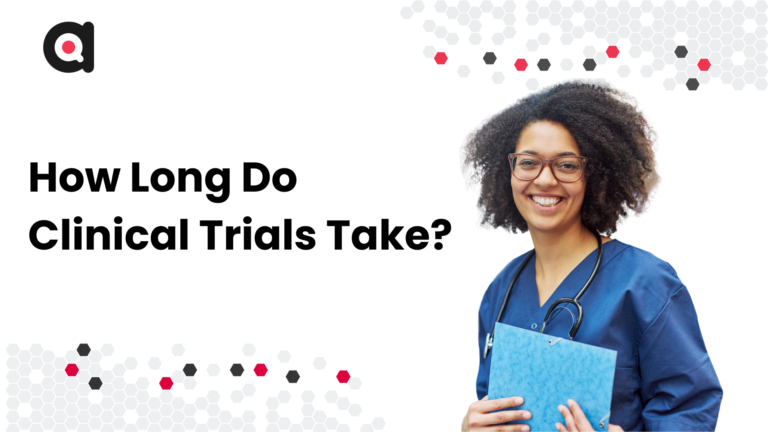How Long Do Clinical Trials Take?
Table of Contents
ToggleAQ

According to Cancer Research UK, the timeline for drug testing and approval varies widely. There’s no fixed duration, but completing all phases of clinical trials even with the help of a CTMS, may take 10 to 15 years or more. This timeline includes licence issuance as well.
The variability is influenced by factors such as the treatment type, disease characteristics, and unforeseen challenges. Whereas regulatory review and approval, conducted by bodies like the FDA or EMA, can add an extra 1 to 2 years. This flexible timeline underscores the commitment to rigorous research, strict safety standards, and the unpredictable nature of drug development.
Let’s discuss in detail how long clinical trials take with respect to each phase.
Phase 0: Exploratory Studies (Several months)
The initial phase, in which researchers conduct exploratory studies with a small number of participants, lasts several months. This helps concentrate on understanding how the drug behaves in the human body and its pharmacokinetics. While the participant pool is limited, this stage provides invaluable insights into the initial safety and dosage parameters of the drug.
Phase I: Safety and Dosage (1-2 years)
Moving to Phase I, which spans approximately 1 to 2 years, the focus shifts to a small group of healthy volunteers. This phase aims to evaluate the drug’s safety and establish an appropriate dosage range.
Throughout this phase, researchers gather crucial data that forms the foundation for subsequent phases by closely monitoring pharmacokinetics and potential side effects.
Phase II: Efficacy and Side Effects (2-3 years)
As the clinical trial research progresses to Phase II, lasting around 2 to 3 years, a larger group of participants, including targeted ones, is introduced. This phase emphasizes more on the evaluation of efficacy, optimal dosage, and the identification of common side effects. Building on the safety findings from Phase I, researchers determine the drug’s effectiveness in a more diverse and representative population. That’s why it takes a couple or more years to be completed.
Phase III: Large-Scale Efficacy (Timeline: 3-5 years)
Phase III is considered the most extensive, with a timeline typically ranging from 3 to 5 years. It involves a substantial number of participants across multiple sites, with a primary objective of confirming the drug’s effectiveness while meticulously monitoring side effects.
This critical phase also includes comparisons with existing treatments, providing a comprehensive understanding of the new therapy’s merits in the long run.
Regulatory Review and Approval (1-2 years)
Following the completion of clinical trials, regulatory bodies, including the FDA or EMA undertake a thorough review. This process usually spans 1 to 2 years. Their in-depth examination of the accumulated data ensures that the drug meets stringent safety and efficacy standards before receiving approval for distribution in the market.
Regulatory Review and Approval (1-2 years)
After the approval, comes the Phase IV, which extends indefinitely, focusing on post-market surveillance. Continuous monitoring is ensured in real-world settings allowing researchers to gather information on the drug’s long-term effects among a diverse population. This helps identify any rare side effects that may not have been evident in earlier phases.
Final Words
The quick answer to how long do clinical trials take is that the journey from drug testing to licensing is a complex and variable process, taking anywhere from 10 to 15 years or more. Various factors, including the type of cancer, treatment methods, and trial focus, significantly influence the timeline. Such a complex and thorough timeline of clinical trials underscores the commitment to delivering safe and effective treatments to patients.
It is recommended to leverage a powerful CTMS to accelerate the clinical trial research process, ensuring unparalleled accuracy and convenience. Try AQ Trials CTMS now!
Related Articles

Industry News
What is the Difference Between CTMS and eTMF?
In clinical trial research management, the Clinical Trial Management System (CTMS) and the Electronic Trial Master File (eTMF) play distinct yet important roles.
AQ

Industry News
The Ultimate Guide to Understanding What is a CTMS
A Clinical Trial Management System (CTMS) is a specialised, all-encompassing project management software tailored to guide a research team from the study’s inception—through the enrolment and oversight phases to the study’s conclusion…
AQ
